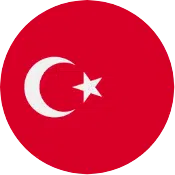
Spanish and Portuguese: Similarities and Differences
When embarking on a language-learning journey, it’s natural to be curious about the relationships between languages. Spanish and Portuguese, two of the most widely spoken Romance languages, often pique the interest of learners. Are Spanish and Portuguese similar? Do they share common roots? In this blog post, we’ll delve into the fascinating connection between Spanish and Portuguese. We will shed light on Spanish and Portuguese similarities and differences.
The Romance Language Family
Spanish and Portuguese both belong to the Romance language family, a group of languages that evolved from Latin. Latin was the language of the Roman Empire, and as the empire expanded, it brought Latin to various regions. Over time, Latin evolved differently in each area, giving birth to the Romance languages. It includes Spanish, Portuguese, French, Italian, and Romanian.
Similarities between Spanish and Portuguese
Vocabulary and Roots:
One of the most apparent similarities between Spanish and Portuguese lies in their shared vocabulary and Latin roots. Many words in both languages have a common origin. It makes it easier for learners of one language to understand and recognize words in the other. For instance, the Spanish word “amor” (love) is “amor” in Portuguese.

Verb Conjugations:
Spanish and Portuguese use similar verb conjugation systems. Both languages employ verb endings that change based on the subject and tense. Although there are some differences in conjugation rules, the overall structure is comparable. This can be advantageous for learners of one language when attempting to acquire the other.
Pronunciation:
The pronunciation of Spanish and Portuguese has some commonalities due to their shared Latin origins. The vowels and certain consonant sounds are somewhat similar. It can help learners familiar with one language to adapt to the other’s pronunciation more easily.
Sign up for our offers
Exclusive discounts on your course with Cactus directly on your inbox!
Differences between Spanish and Portuguese
Pronunciation and Phonetics:
While there are similarities in pronunciation, Spanish and Portuguese also have distinct phonetic differences. For example, Portuguese has nasal vowels, which are not present in Spanish. Additionally, the pronunciation of some consonants varies, making it crucial for learners to grasp the differences.
Vocabulary and Idioms:
Despite the shared vocabulary, there are differences in word choices, idiomatic expressions, and slang between the two languages. Spanish and Portuguese have developed their unique colloquialisms and regional terms. All of these might pose challenges for learners.

Grammar and Verb Forms:
Though both languages share similar verb conjugation systems, there are differences in specific verb forms and tenses. Portuguese, for example, has more verb tenses than Spanish, which can be a point of divergence in grammar.
Similarities and Differences Between Spanish and Portuguese
In summary, Spanish and Portuguese are undeniably similar. Mainly due to their common Latin origins and shared vocabulary. These similarities make it easier for learners of one language to pick up the other. However, they are distinct languages. Both have unique pronunciations, idiomatic expressions, and grammatical nuances that set them apart.
Ultimately, whether you’re learning Spanish or Portuguese, the knowledge of one can be a valuable stepping stone to the other. So, if you’re considering embarking on a bilingual journey, understanding the shared roots and differences between these two languages can be a fascinating and rewarding experience. Both languages open doors to rich and diverse cultures, and learning either one is a great way to connect with people across the globe. ¡Buena suerte! Boa sorte! (Good luck!)

 French
French German
German Italian
Italian Spanish
Spanish Arabic
Arabic Cantonese
Cantonese Czech
Czech Croatian
Croatian Danish
Danish Dutch
Dutch English
English Greek
Greek Hebrew
Hebrew Hindi
Hindi Japanese
Japanese Korean
Korean Norwegian
Norwegian Polish
Polish Portuguese
Portuguese Russian
Russian Swedish
Swedish Thai
Thai Turkish
Turkish Ukrainian
Ukrainian